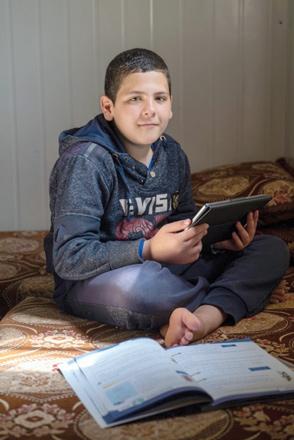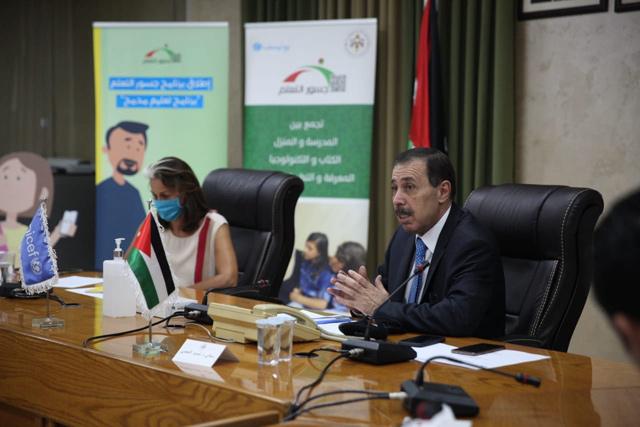You are here
Makani centres help students not fall behind in school
By Tom Grant - Jun 23,2022 - Last updated at Jun 23,2022
AMMAN — Two years after the start of the COVID-19 pandemic, children from across the country are catching up on their studies with the UNICEF-led “Makani Learning Support Service” centres across the Kingdom.
Since 2015, “Makani”, meaning “My Space” in Arabic, has provided 120,000 children with accelerated learning programmes, such as a reading recovery programme focussing on English, Arabic and mathematics.
Makani focuses on children in grades one through nine who are not able to enrol and learn in public schools, or who are at risk of dropping out. The programme is divided into separate stages based on the children’s understanding of the certain topic or curriculum.
The programme places children two grades lower than their current grade, so they can revisit concepts that they may have missed through the absence or misunderstood in blended learning during the pandemic, said Mohammad, a mathematics teacher at the East Amman centre.
Marwa, a 12th grade student who attended a private school before the pandemic and later moved to a government public school, said that online learning during the pandemic was difficult, not just for studying, but also mentally.
She said that in public schools, “one teacher could be teaching a topic to more than one school, which made it hard if I didn’t understand something, as we were on Zoom.”
Marwa went from achieving scores of around 60 per cent on her exams in public school to over 90 per cent through the help of the Makani centre programme.
In addition to learning, the centre also includes classrooms for physical education, drama, music and art, where children learn the three main subjects through blended forms of learning and using different activities.
Fifth grade student Shahad commented how she attends the centre mainly for the sports activities and to see her friends, more than attending for learning.
Shahad is also the owner of a UNICEF-distributed tablet, which enabled her and other children to learn from home during and after the restrictions imposed by the COVID-19 lockdowns in the Kingdom.
The tablets are controlled by UNICEF distributors and only allow children to access educational websites and applications.
“Students would learn through the Google Classroom application; Internet packages and tablets were distributed to the most vulnerable students, so they could access this,” Yasmine, an Arabic teacher, told The Jordan Times.
Some children struggled without in-person teaching because some parents could “neither read nor write”, leading students to depend on the help of older family members or neighbours to access the online learning platforms and connect to Internet providers, Yasmine said.
According to UNICEF’s website, the organisation’s “expertise in bringing together education, youth engagement and child programmes is helping to create a better learning environment for children and youth in Jordan”.
The Makani Centre in Marka, Amman is funded by the Abdul Aziz Al Ghurair Refugee Education Fund.
Related Articles
AMMAN — UNICEF’s Makani Programme provides remote services for the most vulnerable children in Jordan through the provision of remote learni
AMMAN — The Ministry of Education on Sunday launched Learning Bridges programme, an innovative blended learning programme, supported by UNIC
AMMAN — Building on the successful implementation of the first two phases of the IT Blended Learning Initiative “Menhaji Al-Tafaouli”, the M


















